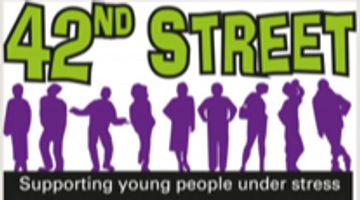Learn More
Please click the button below for further information on a range of organisations offering support, advice and guidance:-

Learn More
Please click the button below for further information and guidance:-
Learn More
Please click the button below for further information and guidance:-
EBSA (Emotionally School Based Avoidance)
Child, School & Home Based Factors Overview
Emotional Based School Avoidance (EBSA) is a broad umbrella term used to describe a group of children and young people who have severe difficulty in attending school due to emotional factors, often resulting in prolonged absences from school. The impact of EBSA on young people and schools is far reaching. Outcomes for young people who display EBSA include poor academic attainment, reduced social opportunities and limited employment opportunities.
We know that the earlier difficulties are identified and support put in place the more successful we are at developing children and young people’s ability to cope with their anxiety and develop their resilience to cope with life's challenges resulting in improved attendance and ongoing life opportunities.
Learn More
Please click the button below to find more information on how to keep your child safe on the internet:-
Support Service Links

42nd STREET
42nd Street is a Greater Manchester charity that supports young people aged 11-25* years with their emotional wellbeing and mental health, promoting choice and creativity.

BROOK
Sexual health and wellbeing for under 25's" that promotes the health, particularly sexual health of young people and those most vulnerable to sexual ill health, through providing information, education and outreach, counselling, confidential clinical and medical services, professional advice and training."

CAMHS
CAMHS stands for Child and Adolescent Mental Health Services. CAMHS are the NHS services that assesses and treat young people with emotional, behavioural or mental health difficulties. CAMHS support covers depression, problems with food, self-harm, abuse, violence or anger, bipolar, schizophrenia and anxiety, to name a few.
Child Criminal Exploitation
Children and young people involved with gangs and criminal exploitation need help and support. They might be victims of violence or pressured into doing things like stealing or carrying drugs or weapons. They might be abused, exploited and put into dangerous situations.

ECLYPSE
Eclypse is a free and confidential drug and alcohol service for young people under 19 and families in Manchester. We provide access to treatment for drugs and/or alcohol (including smoking cessation) and offer holistic support to children, young people and families.

END THE FEAR
Anybody who is experiencing domestic or sexual violence can find help, support and advice here. End The Fear also provide support to people who know someone who may be being abused. You don’t have to put up with domestic abuse.
FGM
FGM is when a female's genitals are deliberately altered or removed for non-medical reasons. It's also known as 'female circumcision' or 'cutting', but has many other names. Female genital mutilation (FGM) is illegal. We're here to support you and have advice to help you keep children and young people safe from FGM.
IT'S NOT OKAY
It’s not okay for someone to manipulate you into doing sexual things for their own or someone else’s benefit. If you’re under 18, this is called child sexual exploitation and it is against the law.

HALO
The Halo Project Charity is a national project that will support victims of honour-based violence, forced marriages and FGM by providing appropriate advice and support to victims. We will also work with key partners to provide required interventions and advice necessary for the protection and safety of victims.

KOOTH
Kooth is a the largest Mental Health and Emotional Wellbeing platform for Children and Young Adults living in the UK. Available for around half of all areas across England and Wales. Kooth gives Young People under the age of 20 fast, free and anonymous access to professional counsellors with safe online support 365 days a year.
MANCHESTER REFUGEE SUPPORT NETWORK
The Manchester Refugee Support Network is an organisation providing practical support to those fleeing persecution, conflict, and various forms of injustice and abuse.

PACT - Prisoners and Families
Pact is a pioneering national charity that supports prisoners, people with convictions, and their children and families. PACT provide caring and life changing services at every stage of the criminal justice process: in court, in prison, on release, and in the community.
THE PROUD TRUST
The Proud Trust is a life saving and life enhancing organisation that helps LGBT+ young people empower themselves, to make a positive change for themselves, and their communities.

YOUNG MINDS
If you’re struggling with your feelings, you're not alone. Young Minds has loads of practical tips and advice from young people just like you, as well as information on getting the support you need.
Our Partners













IncludEd Learning Independent Specialist Education
8 Alexandra Rd South, Whalley Range, Manchester, M16 8ER
